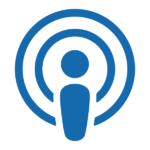Shabnam Palesa Mohammed is an award-winning South African activist, human rights lawyer, and public interest journalist with over 20 years of global experience. She discusses the impacts of war on children, the connections between the pharmaceutical and military industrial complexes, and ways to promote peace through activism and art. Shabnam emphasizes the power of people uniting against oppression and the importance of creative resistance.
* The above video is being streamed via Rumble. Check back often as we continue to update the complete list of links to all witness testimonies in both video and audio/podcast formats.
Credentials
Shabnam Palesa Mohammed is a multifaceted advocate for human rights and social justice. Her work spans law, media, health, advocacy and creative activism focused on justice, sovereignty and social transformation. She champions civil liberties, informed consent and medical freedom. Shabnam is a respected speaker and consultant to global alliances and civil society groups. She is the founder and leader of several influential initiatives including Transformative Health Justice, African Sovereignty Coalition, Children’s Health Defence Africa, World Council for Health and the Samic alliance. As a published poet and creative director, Shabnam integrates art into activism, believing that arts can change the world faster than politics.
Summary
Shabnam presents on the topic of “Ubuntu: Healing the Impact of War Trauma on Children”. She discusses the devastating effects of war on children’s physical and mental health, as well as the broader impacts on society. Shabnam explains the connections between the pharmaceutical and military industrial complexes, highlighting how they profit from conflict. She emphasizes the power of people uniting against oppression and offers strategies for promoting peace, including creative activism, boycotts, and art therapy. Shabnam shares examples of her work in South Africa and globally, including peace campaigns and workshops for trauma survivors. She stresses the importance of recognizing patterns in global conflicts and uniting the human rights, anti-war, and health freedom movements. Shabnam concludes by reading a powerful poem about the impact of war on families in Gaza.
The transcript for this witness testimony is currently in production by our volunteers. It will be available soon here on this page and as a downloadable PDF.









